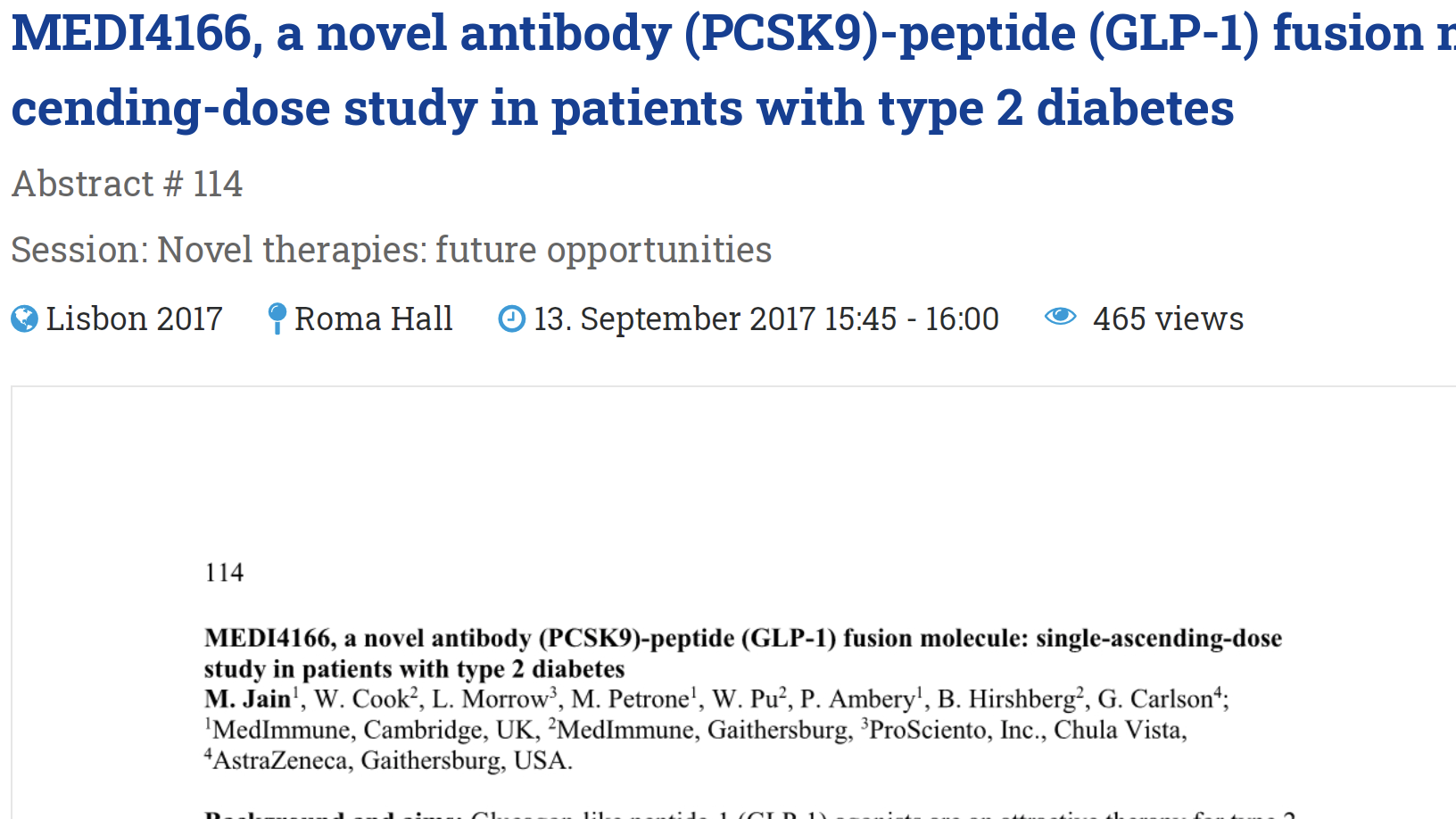About
About this Poster:
Glucagon-like peptide-1 (GLP-1) agonists are an attractive therapy for type 2 diabetes mellitus (T2DM), having proven effects on glycemic control and, for some, showing positive effects on cardiovascular (CV) outcomes. High-intensity statin therapy is recommended in T2DM patients with established CV disease (CVD) and those at increased CV risk (eg, LDL cholesterol [LDL-c] ≥100 mg/dL, family history of premature CVD). However, some T2DM patients at high CV risk may require additional lowering of LDL- or may be intolerant to high-intensity statin therapy. Blockade of antiproprotein convertase subtilisin/kexin type 9 (PCSK9) has emerged as an effective method to lower LDL-c and to decrease risk of CV events by decreasing degradation of the LDL receptor. MEDI4166 is a novel antibody-peptide genetic fusion molecule comprising a PCSK9 antibody and a GLP-1 analogue linked to the N terminus of the antibody light chain by a peptide linker, and therefore has the potential to effectively lower glucose and LDL- with a single molecule. This first-in-human study investigated the safety and pharmacokinetics (PK) of single ascending-doses of MEDI4166 in patients with T2DM.


